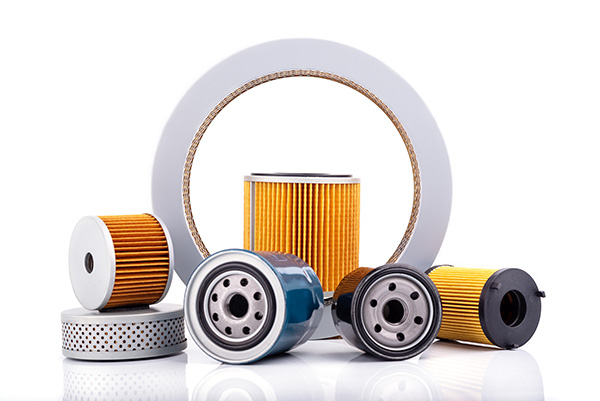
When you think about keeping your car running at its best, filters might not be the first thing that comes to mind. But these important components work tirelessly behind the scenes, ensuring your engine breathes clean air, your fuel system stays clear, and even your cabin remains free from contaminants. So, what exactly are these filters, and why are they necessary to your car’s performance and longevity?
Engine Air Filter
The engine air filter is vital to your car’s respiratory system. Its job is simple but crucial: prevent dirt, dust, and debris from entering the engine. A clean air filter allows the engine to get the optimal air-to-fuel ratio it needs for efficient combustion.
Over time, this filter can become clogged, restricting airflow and causing the engine to work harder than it should. This not only impacts fuel efficiency but can also lead to performance issues. Replacing the engine air filter regularly ensures your engine stays healthy and performs at its best.
Oil Filter
Your engine’s oil plays a critical role in reducing friction and protecting moving parts. However, as oil circulates, it can pick up dirt, metal shavings, and other impurities. That’s where the oil filter steps in—it traps these contaminants and keeps the oil clean.
When the oil filter becomes clogged, it can no longer effectively do its job. Dirty oil can circulate through your engine, leading to increased wear and tear. Regular oil and filter changes are essential to maintaining your engine’s health and preventing costly damage.
Fuel Filter
Fuel is the lifeblood of your car, and the fuel filter ensures it stays clean and free from impurities. This filter blocks dirt, rust, and debris from entering the fuel system, protecting critical components like the fuel injectors and pump.
A clogged fuel filter can lead to reduced engine performance, difficulty starting the car, or even complete engine failure. Replacing this filter according to your manufacturer’s recommendations is a simple way to avoid fuel system troubles and keep your car running reliably.
Cabin Air Filter
The cabin air filter focuses on your comfort rather than the engine’s performance. It filters the air entering your car’s interior, removing pollen, dust, and other allergens. This is especially important if you or your passengers have allergies or respiratory issues.
A clogged cabin air filter can reduce airflow from the vents, making your car’s HVAC system work harder. If you’ve noticed an unpleasant odor or weak airflow, it might be time to replace this filter.
Transmission Filter
The transmission filter plays an important role in keeping the transmission fluid clean in cars with automatic transmissions. This filter captures metal shavings, dirt, and other contaminants that can accumulate in the fluid.
If this filter becomes clogged, it can lead to shifting problems, overheating, or transmission failure. Regular maintenance, including fluid and filter changes, helps ensure your transmission stays in good condition for the long haul.
How Filters Impact Your Car’s Performance
It’s easy to underestimate the importance of filters, but they have a direct impact on your car’s efficiency and reliability. Clogged filters can restrict airflow, reduce fuel delivery, and allow harmful contaminants to circulate through critical systems. This not only affects performance but can also lead to expensive repairs.
Replacing filters at the right intervals is one of the simplest and most cost-effective ways to keep your car running well. Whether it’s the air filter ensuring your engine gets clean air or the fuel filter protecting your injectors, these components play a vital role in your car’s health.
When to Replace Your Car’s Filters
Every filter in your car has a specific lifespan, which can vary depending on your driving conditions and habits. Dusty roads, city driving, and frequent short trips can all accelerate wear and tear. Here are some general guidelines:
- Engine air filter: Replace every 12,000–15,000 miles or as recommended by your car’s manual.
- Oil filter: Replace during every oil change.
- Fuel filter: Typically replaced every 30,000–50,000 miles, though this can vary.
- Cabin air filter: Replace every 15,000–25,000 miles or if airflow is restricted.
- Transmission filter: Replace during a transmission fluid change, usually every 30,000–60,000 miles.
Consult your owner’s manual or a trusted repair shop to determine the best schedule for your vehicle.
Don’t wait for clogged filters to cause trouble—visit Spectrum Car Care for expert inspections and replacements. We’re here to keep your car running reliably.